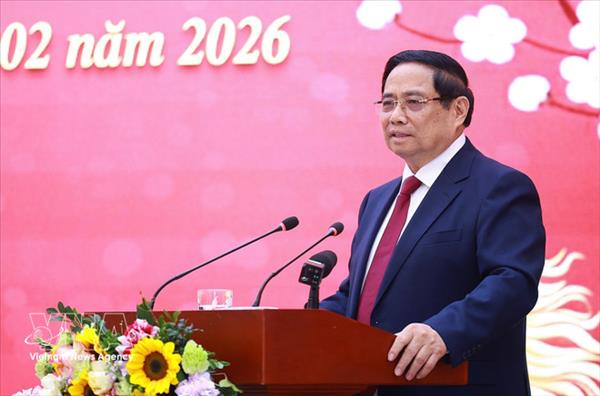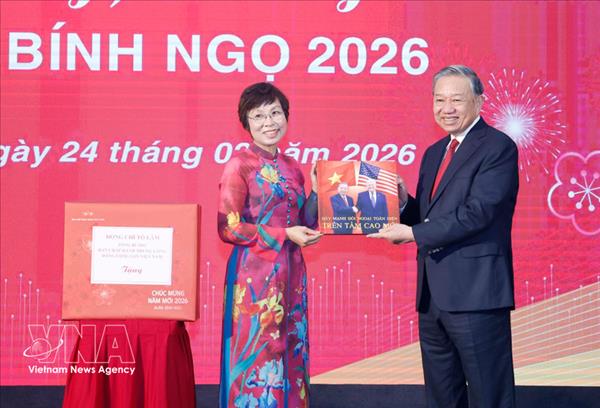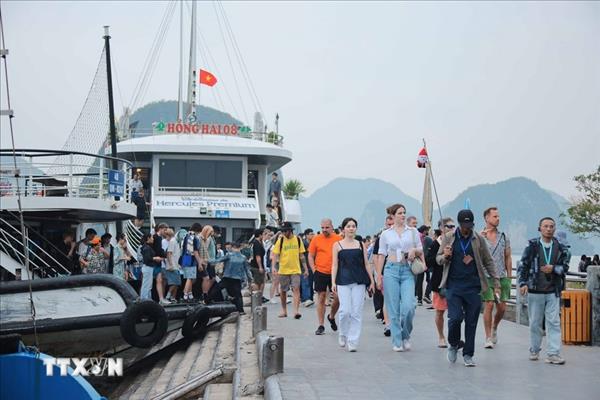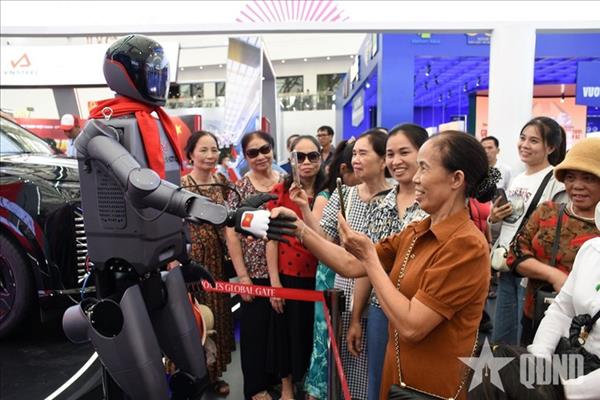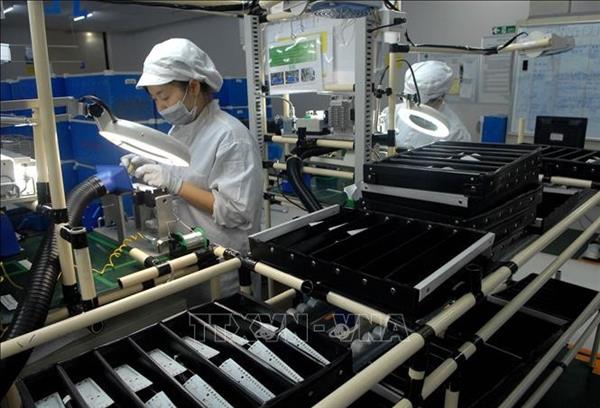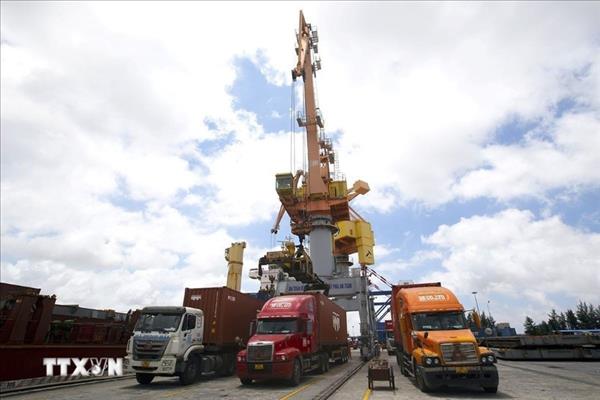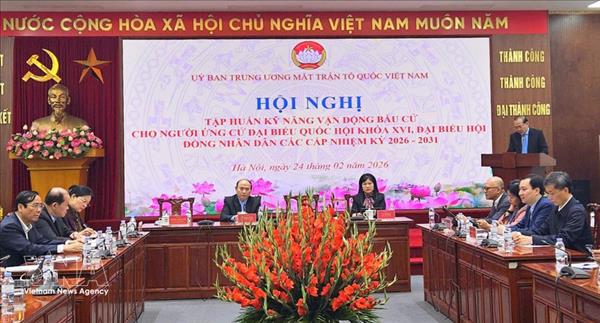Heads of state from across Southeast Asia on September 12 hailed the technological opportunities for the region in the Fourth Industrial Revolution (4IR).
The leaders are attending the World Economic Forum on ASEAN (WEF on ASEAN), themed “ASEAN 4.0: Entrepreneurship and the Fourth Industry Revolution” that attracted the participation of over 1,000 delegates who are WEF members and representatives of businesses from around the world.
“The opportunities brought about by the 4IR are indeed enormous,” Vietnamese Prime Minister Nguyen Xuan Phuc told the opening plenary of the ongoing event in Hanoi. “The start-up atmosphere is truly permeating throughout ASEAN,” he said.
The Vietnamese government leader said ASEAN is a shining star among emerging market economies, with robust growth rates of almost 7 percent. He emphasised the need to seize technological opportunities brought about by rapid technological growth.
The PM added that, later today, he will proudly inaugurate a digital passenger transport service based on the 4.0 model – a collaboration between cutting-edge start-ups GoViet and GoJek, from Vietnam and Indonesia.
According to Prime Minister of Singapore Lee Hsien Loong ASEAN member states are in a good position to take advantage of the new opportunities that the 4IR can bring.
“This Fourth Industrial Revolution is upon us. The global economy is being transformed by new and far-reaching breakthroughs in technologies,” Lee Hsien Loong noted. “ASEAN will become the fourth-largest economy in the world by 2020, after the United States, China and the European Union.”
Prajin Juntong, Thai Deputy Prime Minister and Minister of Justice, said his country has implemented a “Thailand 4.0” policy to shift its economic focus towards an innovation-driven economy.
“For Thailand, the 4IR represents a big turning point for the way we live and do our business. Technology is now an integral part of society at all levels but also poses immense challenges for SMEs and marginal groups,” he said.
President of Indonesia Joko Widodo said there are at least four start-ups now valued at 1 billion USD each in Indonesia.
“As our economies develop, they are driven increasingly not by natural resources, which are limited, but human talent, which is unlimited,” he said.
Across ASEAN, the effects of the technological transformation will be keenly felt, particularly among the region’s young demographic, with 11,000 people entering the labour force each day. Acknowledging that digitalisation has become a new growth catalyst, Cambodian Prime Minister Samdech Techo Hun Sen said that while the technological frontier will create positive change, it will also cause anxiety about job losses, as increasing automation affects manual labour and ASEAN as a traditional factory hub.
“We need to focus on education and skills training to address job losses and economic and social inequality,” he said, calling for regional initiatives to support research, talent incubation and entrepreneurial skills.
Aung San Suu Kyi, State Counsellor of Myanmar, emphasized the technological leaps her country has achieved in the past five years, citing the dramatic drop in the price of mobile phones as an example. She also stressed that the Fourth Industrial Revolution should be human-centric.
“Our approach to the Fourth Industrial Revolution is based on our belief in the creativity, empathy and stewardship qualities of our people, especially the young,” she said.
Noting that collaborative advances in the regional market have been achieved, Lao Prime Minister Thongloun Sisoulith urged continued unity in an “evolving regional architecture to ensure that ASEAN connectivity grows.”
Founded in 1967, ASEAN groups together Brunei, Cambodia, Indonesia, Laos, Malaysia, Myanmar, the Philippines, Singapore, Thailand and Vietnam.
On the back of rising purchasing power of its 630 million citizens, the 10-member ASEAN has a collective GDP of 2.8 trillion USD, making it the sixth-largest economy in the world.
Schwab Klaus Schwab, Founder and Executive Chairman of the World Economic Forum, said: “The ASEAN way of striving for consensus among rival countries can serve, particularly during those times, as a good role model for our world”.
As the host country for 2018 WEF-ASEAN, it is Vietnam's crucial responsibility to work together with WEF and ASEAN members to discuss issues pertinent to their national development in the midst of the Fourth Industrial Revolution.
Such discourse shall help realize the 2025 ASEAN Vision, in the interest and for the development of the entire region at large and each country individually, thus contributing to the common prosperity of the region and the world.
The WEF was established in 1971 as a non-profit foundation and is headquartered in Geneva. The forum engages political, business, and other leaders to shape global, regional, and industry agendas.
The leaders are attending the World Economic Forum on ASEAN (WEF on ASEAN), themed “ASEAN 4.0: Entrepreneurship and the Fourth Industry Revolution” that attracted the participation of over 1,000 delegates who are WEF members and representatives of businesses from around the world.
“The opportunities brought about by the 4IR are indeed enormous,” Vietnamese Prime Minister Nguyen Xuan Phuc told the opening plenary of the ongoing event in Hanoi. “The start-up atmosphere is truly permeating throughout ASEAN,” he said.
The Vietnamese government leader said ASEAN is a shining star among emerging market economies, with robust growth rates of almost 7 percent. He emphasised the need to seize technological opportunities brought about by rapid technological growth.
The PM added that, later today, he will proudly inaugurate a digital passenger transport service based on the 4.0 model – a collaboration between cutting-edge start-ups GoViet and GoJek, from Vietnam and Indonesia.
According to Prime Minister of Singapore Lee Hsien Loong ASEAN member states are in a good position to take advantage of the new opportunities that the 4IR can bring.
“This Fourth Industrial Revolution is upon us. The global economy is being transformed by new and far-reaching breakthroughs in technologies,” Lee Hsien Loong noted. “ASEAN will become the fourth-largest economy in the world by 2020, after the United States, China and the European Union.”
Prajin Juntong, Thai Deputy Prime Minister and Minister of Justice, said his country has implemented a “Thailand 4.0” policy to shift its economic focus towards an innovation-driven economy.
“For Thailand, the 4IR represents a big turning point for the way we live and do our business. Technology is now an integral part of society at all levels but also poses immense challenges for SMEs and marginal groups,” he said.
President of Indonesia Joko Widodo said there are at least four start-ups now valued at 1 billion USD each in Indonesia.
“As our economies develop, they are driven increasingly not by natural resources, which are limited, but human talent, which is unlimited,” he said.
Across ASEAN, the effects of the technological transformation will be keenly felt, particularly among the region’s young demographic, with 11,000 people entering the labour force each day. Acknowledging that digitalisation has become a new growth catalyst, Cambodian Prime Minister Samdech Techo Hun Sen said that while the technological frontier will create positive change, it will also cause anxiety about job losses, as increasing automation affects manual labour and ASEAN as a traditional factory hub.
“We need to focus on education and skills training to address job losses and economic and social inequality,” he said, calling for regional initiatives to support research, talent incubation and entrepreneurial skills.
Aung San Suu Kyi, State Counsellor of Myanmar, emphasized the technological leaps her country has achieved in the past five years, citing the dramatic drop in the price of mobile phones as an example. She also stressed that the Fourth Industrial Revolution should be human-centric.
“Our approach to the Fourth Industrial Revolution is based on our belief in the creativity, empathy and stewardship qualities of our people, especially the young,” she said.
Noting that collaborative advances in the regional market have been achieved, Lao Prime Minister Thongloun Sisoulith urged continued unity in an “evolving regional architecture to ensure that ASEAN connectivity grows.”
Founded in 1967, ASEAN groups together Brunei, Cambodia, Indonesia, Laos, Malaysia, Myanmar, the Philippines, Singapore, Thailand and Vietnam.
On the back of rising purchasing power of its 630 million citizens, the 10-member ASEAN has a collective GDP of 2.8 trillion USD, making it the sixth-largest economy in the world.
Schwab Klaus Schwab, Founder and Executive Chairman of the World Economic Forum, said: “The ASEAN way of striving for consensus among rival countries can serve, particularly during those times, as a good role model for our world”.
As the host country for 2018 WEF-ASEAN, it is Vietnam's crucial responsibility to work together with WEF and ASEAN members to discuss issues pertinent to their national development in the midst of the Fourth Industrial Revolution.
Such discourse shall help realize the 2025 ASEAN Vision, in the interest and for the development of the entire region at large and each country individually, thus contributing to the common prosperity of the region and the world.
The WEF was established in 1971 as a non-profit foundation and is headquartered in Geneva. The forum engages political, business, and other leaders to shape global, regional, and industry agendas.
VNA/VNP

